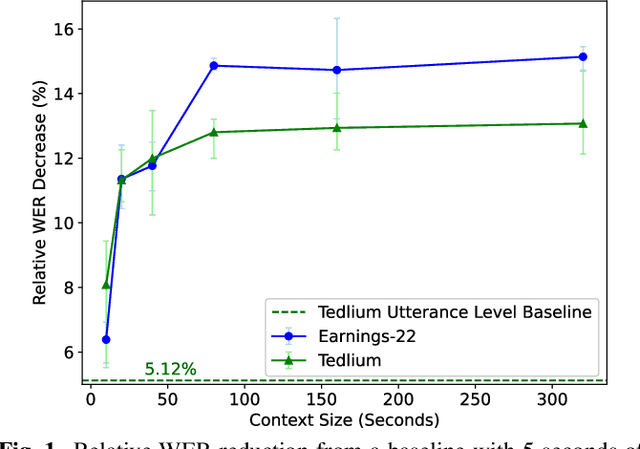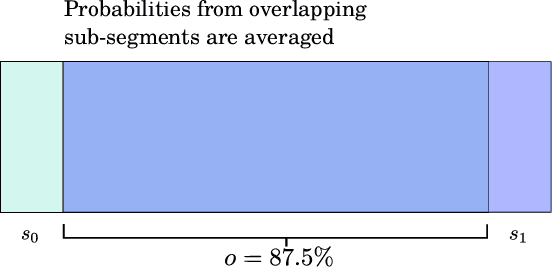How Much Context Does My Attention-Based ASR System Need?
Paper and Code
Oct 24, 2023



For the task of speech recognition, the use of more than 30 seconds of acoustic context during training is uncommon, and under-investigated in literature. In this work, we examine the effect of scaling the sequence length used to train/evaluate (dense-attention based) acoustic and language models on speech recognition performance. For these experiments a dataset of roughly 100,000 pseudo-labelled Spotify podcasts is used, with context lengths of 5 seconds to 1 hour being explored. Zero-shot evaluations on long-format datasets Earnings-22 and Tedlium demonstrate a benefit from training with around 80 seconds of acoustic context, showing up to a 14.9% relative improvement from a limited context baseline. Furthermore, we perform a system combination with long-context transformer language models via beam search for a fully long-context ASR system, with results that are competitive with the current state-of-the-art.
 Add to Chrome
Add to Chrome Add to Firefox
Add to Firefox Add to Edge
Add to Edge